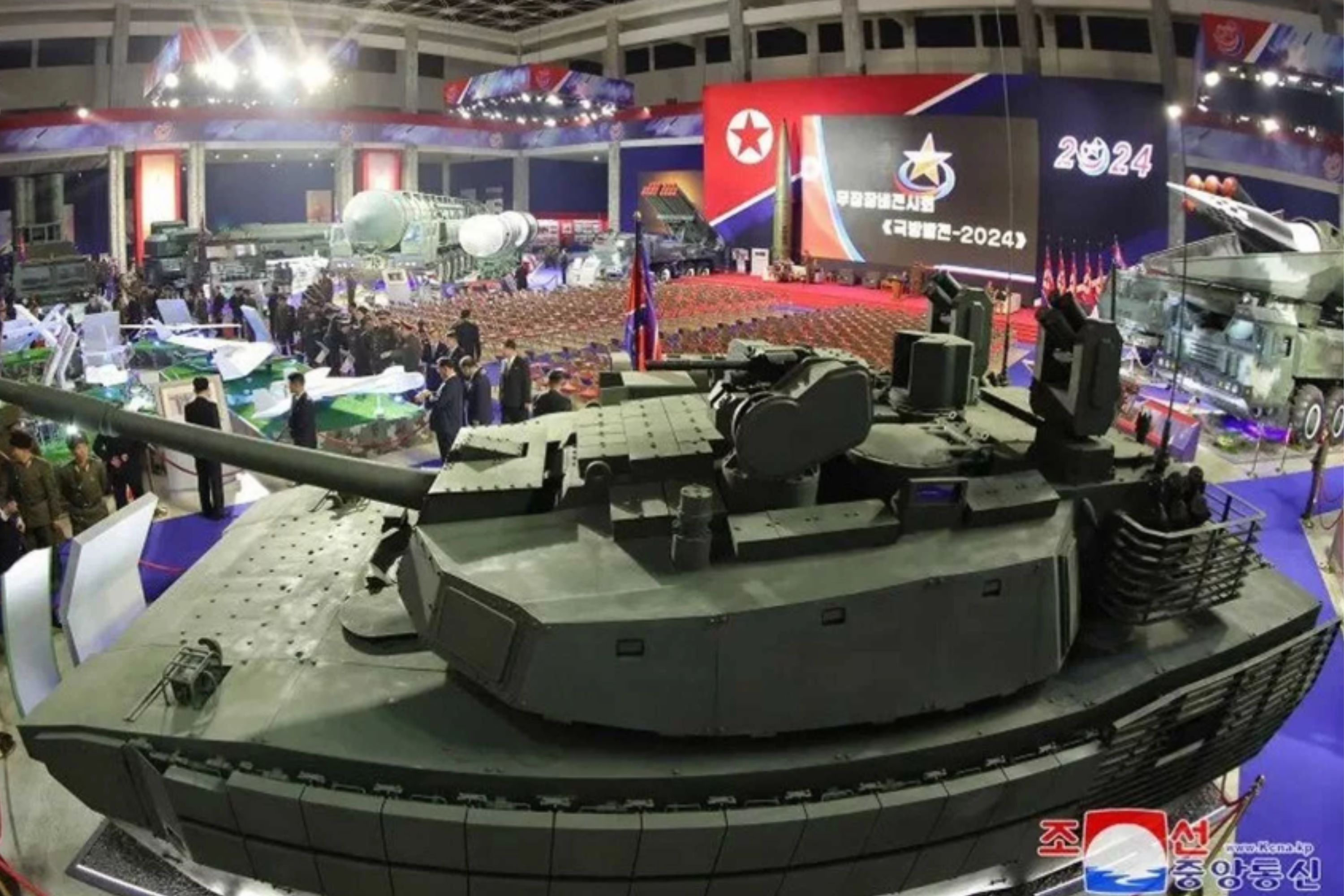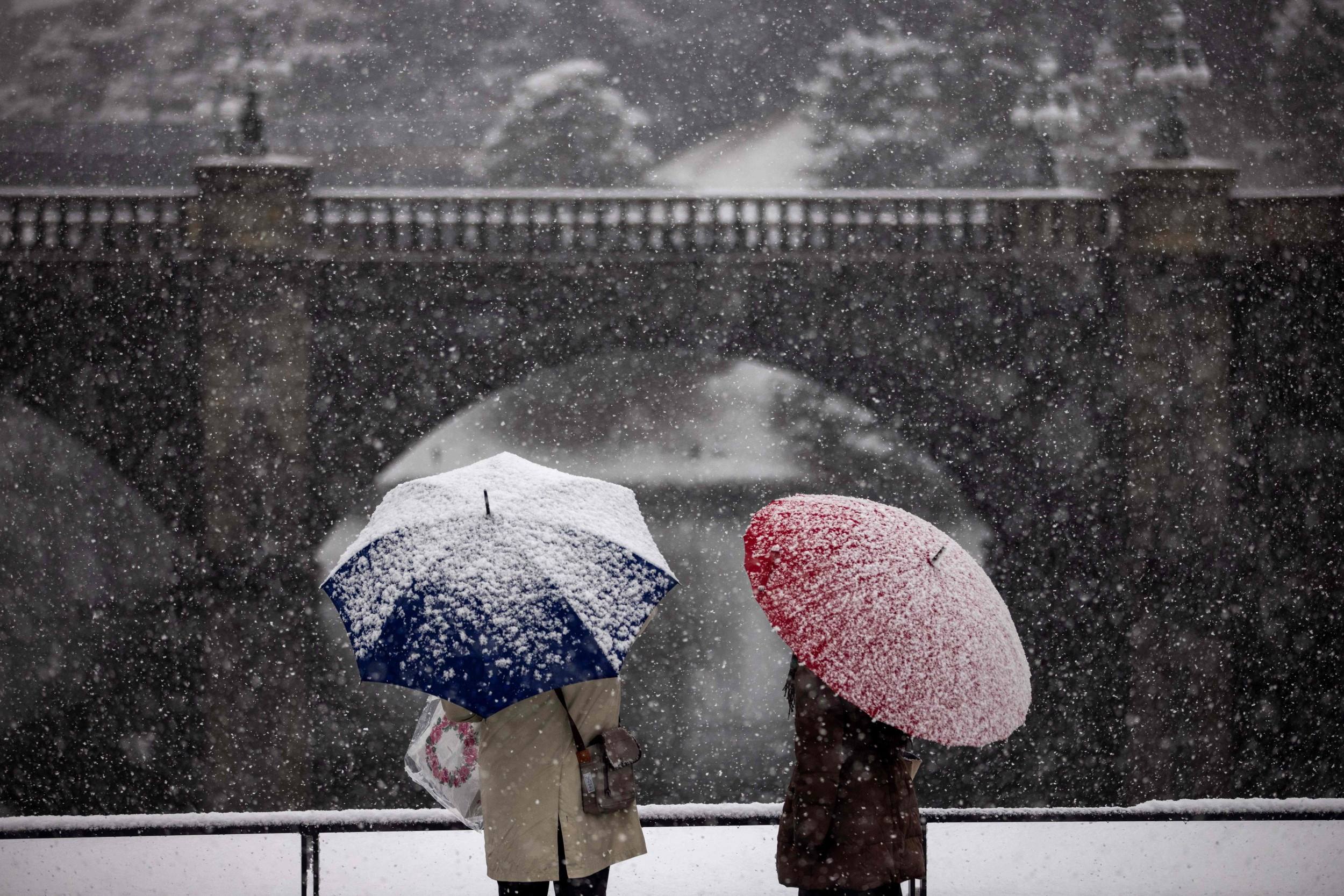Denver Mayor Mike Johnston suggested last week that he could use police officers to prevent federal immigration officers from entering his city to carry out mass deportations when President-elect Donald Trump returns to office.
"More than us having [Denver police] stationed at the county line to keep them out, you would have 50,000 Denverites there," Johnston, a Democrat, told the news website Denverite. "It's like the Tiananmen Square moment with the rose and the gun, right? You'd have every one of those Highland moms who came out for the migrants. And you do not want to mess with them."
He later appeared to walk back those comments but said in an interview with Denver's KUSA that he was willing to go to jail to stop Trump's deportation efforts. Newsweek has contacted his office for comment via email.
Johnston's comments come as leaders in "sanctuary" cities and states across the country are also gearing up to respond to Trump's plans to deport migrants who are in the country illegally when he returns to the White House in January.

What are 'sanctuary' jurisdictions?
There is no legal definition of a sanctuary city or state, but they refer to areas that decline to voluntarily assist federal immigration enforcement authorities, making it harder for undocumented migrants to be arrested and deported.
Some 13 states and more than 220 cities and counties already have some kind of "sanctuary" law or policy that limits cooperation with federal immigration authorities, according to the Center for Immigration Studies.
Trump has vowed to launch the largest deportation program in U.S. history in his second term and promised to defund so-called "sanctuary" jurisdictions that resist his efforts.
Last week, he confirmed plans to declare a national emergency and possibly use the military to deport the nearly 11 million people who are believed to be in the U.S. illegally.
"President Trump will marshal every federal and state power necessary to institute the largest deportation operation of illegal criminals, drug dealers, and human traffickers in American history while simultaneously lowering costs for families," Karoline Leavitt, a spokesperson for the Trump transition and incoming White House press secretary, previously told Newsweek, which contacted her for further comment via email.
In one of his first personnel announcements, Trump said he would put Tom Homan, his former acting U.S. Immigration and Customs Enforcement (ICE) director, "in charge of all deportation of illegal aliens back to their country of origin."
Homan has said that mass deportations would be carried out "in a humane manner" as part of "a well-targeted, planned operation."
How 'sanctuary' cities plan to protect immigrants
Johnston and other Democratic leaders have vowed to do whatever they can to protect their immigrant communities.
San Francisco "will work aggressively to protect our immigrant communities," a spokesperson for outgoing Mayor London Breed's office told Newsweek.
"Regardless of changes at the federal level, San Francisco's sanctuary policies remain in place, and we will continue to support fair and compassionate treatment for all families in the city, including by providing legal resources."
The spokesperson said that the mayor's office is "conferring with our various city agencies, including the City Attorney's Office to discuss ways in which we can protect our residents for any new potential threats from the Trump administration that will need to be addressed by the next mayoral administration."
New York City Mayor Eric Adams, who is facing bribery, wire fraud and other charges, has said he opposes mass deportations but that he would be open to working with the Trump administration on immigration.
In a recent appearance on The View, he said that New York has always welcomed immigration and that law-abiding migrants will be protected. However, he said that the immigration system is "broken" and the current crisis has cost the city billions of dollars.
In Los Angeles, the city council has approved a "sanctuary city" ordinance that bars city resources from being used for immigration enforcement and city departments from sharing information on people without legal status with federal immigration authorities.
Council member Hugo Soto-Martínez told MSNBC that the city "will not be collaborating or using any city resource to enforce [Trump's] deportation machine."
Homan responded by saying the Trump administration would send more federal immigration officers to the city to enact deportations.
"If I've got to send twice as many officers to L.A. because we're not getting any assistance, then that's what we're going to do," he said. "We've got a mandate, President Trump's serious about this, I'm serious about this. This is going to happen with or without you."
Boston Mayor Michelle Wu, a daughter of immigrants, has vowed to fight deportation efforts and said the city's police will not cooperate with federal immigration agents.
"What we can do is make sure that we are doing our part to protect our residents in every possible way," she said in an interview with local news station WCVB's On the Record earlier this month. "We are not cooperating with those efforts that actually threaten the safety of everyone by causing widespread fear and having large-scale economic impact."
In Boston, the Trust Act prohibits Boston police from detaining or arresting individuals solely for immigration enforcement purposes. But Wu said in the interview that it allows law enforcement to work with ICE on "matters of significant public safety importance, such as human trafficking, child exploitation, drug and weapons trafficking, and cybercrimes."
Newsweek has contacted Wu's office for further comment via email.
Homan hit back at Wu, describing her as "not very smart" on Newsmax, and referenced a federal law that makes it a crime to harbor "unauthorized aliens."
"Either she helps us [or] she gets the hell out of the way because we're going to do it," Homan said.
"To those people who say they're going to stop us from what they're doing, they will not. I'm going to do this job," he said on Fox News. "You're not going to stop us. But let me give you a word of advice. If you impede us, there's going to be consequences."
Texas Republican Senator Ted Cruz has also said that Democratic leaders at the state and local levels will be able to do little to block mass deportations under Trump.
"They're just engaged in open defiance," he said during an appearance on Fox News. "Federal law enforcement has the authority to go in and arrest the criminals."
Can 'sanctuary' laws stop mass deportations?
Experts said that federal immigration agents can still operate in jurisdictions, even if they do not have assistance from local law enforcement.
Stephen Yale-Loehr, a professor of immigration law practice at Cornell University, told Newsweek that sanctuary laws will "slow down" but not stop mass deportations.
"A sanctuary law merely means that local cops won't cooperate with federal immigration agents in identifying and arresting immigrants," he said. "But that doesn't mean federal immigration officials can't come into a city on their own. So a local sanctuary law may slow down mass deportation efforts, but it can't stop them."
Colleen Putzel-Kavanaugh, an associate policy analyst at the Migration Policy Institute, said that while sanctuary laws are "a good measure of how states may respond to mass deportation efforts by the Trump administration...there exists a mismatch among states."
Only Oregon and Illinois have laws that prohibit sharing information with ICE, while other states like Texas and Florida have legislation mandating information sharing, Putzel-Kavanaugh said.
"As states ready for the next administration's immigration policies, this variation in levels of cooperation amongst states may continue to grow," she said.



















 English (US) ·
English (US) ·